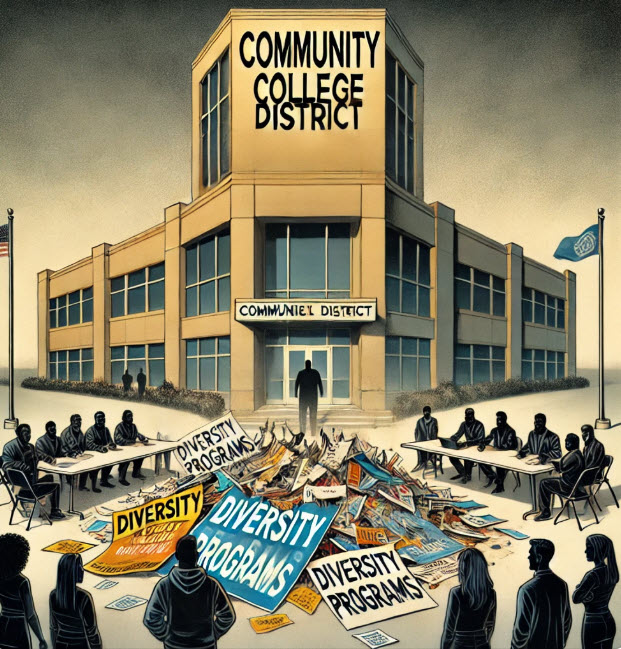Selected works will play a significant role in Yavapai Community College’s Peace Summit, to be held Thursday April 3 and Friday April 4 on Prescott Campus
 Yavapai Community College is inviting students and community members to submit artwork that reflects the theme of “Peace.” Selected pieces will be prominently featured at the Yavapai College Peace Summit, taking place on Thursday, April 3, and Friday, April 4, on the Prescott Campus, contributing to the event’s mission of fostering unity and meaningful dialogue.
Yavapai Community College is inviting students and community members to submit artwork that reflects the theme of “Peace.” Selected pieces will be prominently featured at the Yavapai College Peace Summit, taking place on Thursday, April 3, and Friday, April 4, on the Prescott Campus, contributing to the event’s mission of fostering unity and meaningful dialogue.
Sponsored by Yavapai College’s Justice Institute and RESPECT campaign, the Peace Summit will hold court on YCC’s Prescott Campus, providing a variety of College and local groups an opportunity to discuss and share ideas on important values like empathy, open-mindedness and courteous conversation. The Community College says that The Peace Summit is designed to create an effective place and time to promote unity and healing among students and community members in this time of great social division.
The deadline for submitted artwork is March 24, 2025. The Community College is accepting a variety of works — including drawings, paintings, printmaking, textiles, and small sculptures – that capture or express a theme of “Peace.” Artists may submit up to two original art works, which will be juried by YCC Art History Professor Dr. Brandelyn Andres and YCC Galleries Manager Tim Hull. Applicants may submit their works on the YCC Gallery’s submission link:
https://yavapaicollegeartgallery.submittable.com/submit
All accepted artwork will be displayed in Yavapai College’s Prescott Campus Community Room, Building 19, Room 147, during the two-day Peace Summit. After the Summit, the artwork will travel to the Mountain Artist’s Guild in Prescott to be part of the annual Yavapai Community College Art Exhibition from April 21 to May 17.
Artists will be notified on Tuesday, March 25. Accepted artwork must be hand-delivered to the YCC Prescott Art Gallery by Tuesday, April 1, between 10 a.m. and 3 p.m. Wall artwork should not exceed 40 lbs. Paintings on canvas must be gallery wrapped and wired for hanging. For additional information, please contact YC Galleries Director Timothy Hull at (928) 776-2031.
 The sole spring exception was supposed to be the March 25 meeting, which had been scheduled as an in-person session at the Verde Valley Campus. However, the Board has now changed that meeting to a Zoom-only format—without offering any explanation.
The sole spring exception was supposed to be the March 25 meeting, which had been scheduled as an in-person session at the Verde Valley Campus. However, the Board has now changed that meeting to a Zoom-only format—without offering any explanation. Arizona Governor Katie Hobbs, the Arizona Commerce Authority, and partners from Boeing and Honeywell have joined forces to launch the first-of-its-kind Aerospace & Defense Future48 Workforce Accelerator. This aerospace and defense-focused facility will open in the fall of 2026 at Chandler-Gilbert Community College’s (CGCC) Williams campus, bringing together students and industry partners.
Arizona Governor Katie Hobbs, the Arizona Commerce Authority, and partners from Boeing and Honeywell have joined forces to launch the first-of-its-kind Aerospace & Defense Future48 Workforce Accelerator. This aerospace and defense-focused facility will open in the fall of 2026 at Chandler-Gilbert Community College’s (CGCC) Williams campus, bringing together students and industry partners.
 OPINION: Some members of the Yavapai Community College District Governing Board seem to harbor a strong dislike for the newest elected member, William Kiel. (Most likely viewing him as asking too many questions; being too persistent, wanting greater transparency, and doesn’t necessarily agree with all their views.) That animosity became evident at the outset of the February 18 Board meeting when Kiel attempted to speak to a motion before it had been voted on. In response, the Chair McCasland employed a sleight-of-hand maneuver to pass the motion, bending procedure just enough to disguise what some feel was her real intent, which was to muzzle Kiel.
OPINION: Some members of the Yavapai Community College District Governing Board seem to harbor a strong dislike for the newest elected member, William Kiel. (Most likely viewing him as asking too many questions; being too persistent, wanting greater transparency, and doesn’t necessarily agree with all their views.) That animosity became evident at the outset of the February 18 Board meeting when Kiel attempted to speak to a motion before it had been voted on. In response, the Chair McCasland employed a sleight-of-hand maneuver to pass the motion, bending procedure just enough to disguise what some feel was her real intent, which was to muzzle Kiel. OPINION: Fourth District Yavapai Community College District Governing Board member Patrick Kuykendall launched a vicious personal attack on First District Representative William Kiel during the February 18 Governing Board meeting. The outburst occurred amid a discussion on the authority and accountability of Yavapai’s president, Dr. Lisa Rhine, and the adoption of a resolution that vested virtually all power in her.
OPINION: Fourth District Yavapai Community College District Governing Board member Patrick Kuykendall launched a vicious personal attack on First District Representative William Kiel during the February 18 Governing Board meeting. The outburst occurred amid a discussion on the authority and accountability of Yavapai’s president, Dr. Lisa Rhine, and the adoption of a resolution that vested virtually all power in her. Federal judge Deborah Boardman on Monday, February 24, 2025 issued a temporary restraining order saying disclosure of the education department’s sensitive personal information to DOGE affiliates is irreparable harm that money damages cannot rectify.” She also said the Office of Personnel Management can’t disclose the information.
Federal judge Deborah Boardman on Monday, February 24, 2025 issued a temporary restraining order saying disclosure of the education department’s sensitive personal information to DOGE affiliates is irreparable harm that money damages cannot rectify.” She also said the Office of Personnel Management can’t disclose the information. COMMENTARY: The actions by the Trump administration’s newly created Department of Government Efficiency (DOGE) may have a significant impact on the operations of Yavapai Community College. There is concern because DOGE is already taking away millions of dollars in existing grants and contracts from various educational institutions. In addition to this concern, the Trump administration has mandated that educational institutions eliminate anything that directly or indirectly might be linked to what are commonly called “Diversity, Equity and Inclusion (DEI)” programs or projects.
COMMENTARY: The actions by the Trump administration’s newly created Department of Government Efficiency (DOGE) may have a significant impact on the operations of Yavapai Community College. There is concern because DOGE is already taking away millions of dollars in existing grants and contracts from various educational institutions. In addition to this concern, the Trump administration has mandated that educational institutions eliminate anything that directly or indirectly might be linked to what are commonly called “Diversity, Equity and Inclusion (DEI)” programs or projects. The Patty McMullen-Mikles art Gallery on the Verde Campus will host a unique exhibit starting February 25 and running until March 27. An opening reception for the exhibit, Sustainable Art, will be held Thursday, March 6 from 5 – 7 p.m.
The Patty McMullen-Mikles art Gallery on the Verde Campus will host a unique exhibit starting February 25 and running until March 27. An opening reception for the exhibit, Sustainable Art, will be held Thursday, March 6 from 5 – 7 p.m.